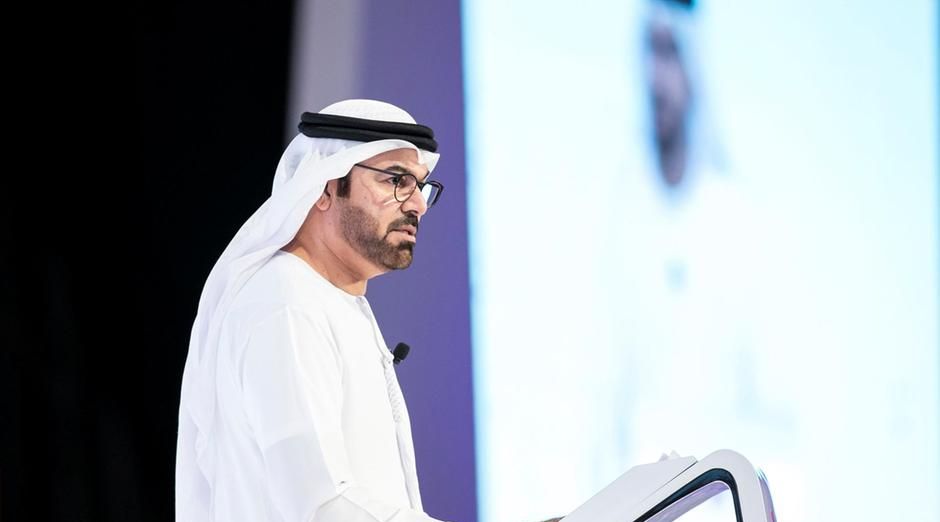The annual World Government Summit has designed an aspiring 21-point report that could help in achieving resilient recovery from COVID-19. At a time when the Coronavirus pandemic has brought world economies and international travel to a standstill, the report has urged global leaders to seize the moment. Launched by the World Government Summit on May 5, the report has warned that global concerns such as climate change, mental health wellness, women’s empowerment are likely to intensify if governments do not adopt holistic and proactive approach to post-pandemic recovery.
As per the report, about 50 percent of the global cost of the pandemic will fall on developed economies, which could be increased up to US$3.8 trillion (AED13.96trn) in 2021. Even if developed countries across the world are able to vaccinate their entire population and developing nations could vaccinate 50 percent of their population, half of the pandemic cost would be borne by developed economies, the report finds.
The report titled ‘21 priorities for governments in 2021’ has also urged world leaders to reimagine cities, repair the social fabric, empower women and prepare for a new world of multilateralism.
“2020 will be remembered by history as the year of great disruption. While the world was woefully unprepared for the voracity of the virus, 2021 needs to be the year that defines humanity’s future and reshape societies to become stronger and more resilient," said Mohammad Al Gergawi, UAE Minister of Cabinet Affairs and Chairman of the World Government Summit Organization.
He stressed the need for redefining the future of humanity and reshaping society to become stronger and more resilient in 2021 after the lack of global preparedness for the velocity and voracity of Coronavirus in 2020.
“With great change comes great opportunity. Valuable lessons emerged over the past year, which we must heed as we recover," he added.
Al Gergawi highlighted the significance of interconnectedness between countries and entities and with nature.
"Our individual and collective actions as nations have important consequences, not only for us but for our children and the many generations to come after them – we must all be accountable to ourselves and to one another," the minister said.
In this regard, the report breaks down the 21 priorities into five key sections that require immediate attention by world leaders:
1. Reimagining and Reinforcing Key Public Institutions
2. Competing in a Transformed Economy
3. Navigating a Transformed Geo-Technical Order
4. Repairing the Social Fabric
5. Securing the Future
Rudolph Lohmeyer, partner at consultant company Kearney, noted that the world has come at a critical juncture in which humanity is facing both deep uncertainties and remarkable opportunities across several policy domains. He underlined decisions made by government leaders this year will have exceptionally long-term consequences.
"By taking anticipatory action on these 21 priorities, leaders have an opportunity to harness this transition in the service of their citizens through building societies that are more inclusive and innovative," he added, speaking about the report.
The World Government Summit Dialogues event was held virtually in March 2021. During the event, participants from across countries discussed climate change and the impact of the pandemic on the world.
David Nabarro, a special envoy on COVID-19 for the WHO, condemned the unfair distribution of COVID-19 vaccines. Two world-renowned scientists criticised efforts to colonise Mars in order to escape climate change and other concerns on Earth.
Here are the 21 priorities for governments in 2021:
Reimagining and reinforcing key public institutions:
Alleviate fiscal overhangs
Reimagine the role of cities
Transform the national portfolio of capabilities
Compete in a transformed economy
Prepare for the coming regulatory shock:
Rebalance self-sufficiency and competitiveness
Drive radical, inclusive upskilling at scale
Reinvent the task structure of the workforce
Navigate a transformed geo-technical order
Navigate the global competition for allegiance:
Prepare to navigate a reordered technology market
Build deep data alliances
Prepare for the new multilateralism
Repair the social fabric
Reactivate critical global health initiatives on enduring threats:
Heal the mental health overhang
Protect the development of our youngest minds
Restore and expand the empowerment of women
Defend the sovereignty of citizens’ minds
Secure the future
Eliminate viral breeding grounds globally:
Adapt to the grey zone
Counter criminal exploitation of the crisis
Activate whole-of-society circular resilience
Harness “warp speed” policy approaches
Meanwhile, the next World Government Summit is scheduled to take place in October 2021.
 AR
AR UR
UR
